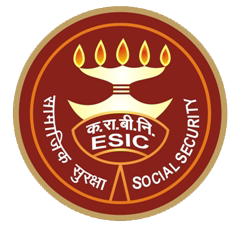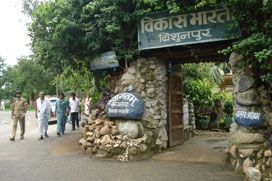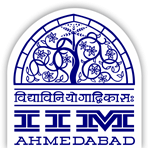
इस समाचार को हिन्दी में पढ़े आगे...
The Government of India and Asian Development Bank (ADB) today signed a $112 million loan to develop water supply infrastructure and strengthen capacities of urban local bodies (ULBs) for improved service delivery in four towns in the state of Jharkhand.
The signatories to the agreement for Jharkhand Urban Water Supply Improvement Project were Rajat Kumar Mishra, Additional Secretary, Department of Economic Affairs in the Ministry of Finance who signed for the Government of India, and Takeo Konishi, Country Director of ADB’s India Resident Mission who signed for ADB.
After signing the agreement, Mishra stated that the project is aligned with Government of Jharkhand’s priority to improve urban services in the state and will ensure continuous, treated piped water supply in the state capital of Ranchi and other three towns of Hussainabad, Jhumri Telaiya, and Medininagar located in economically and socially backward areas.
“The project will be ADB’s first urban project in the state and help establish a model for continuous water supply combined with policy reforms for sustainable operation which can be replicated by other low-income states for providing safe drinking water to urban households as envisaged under national Jal Jeevan Mission,” said Konishi.
Four water treatment plants, with a combined capacity of 275 million liters per day, will be established in the project towns to provide safe drinking water meeting the national drinking water quality standards. The project will also establish 940 kilometers of water distribution network to provide continuous water supply to about 115,000 households, including those below the poverty line, scheduled caste and scheduled tribe members, and other vulnerable groups.
To ensure sustainability, the project will strengthen the capacity of ULBs on urban service delivery and governance through development of an asset management strategy and training on design and implementation of urban projects. Innovative technologies will be introduced to minimize water losses in water treatment and distribution. The project also includes the use of a supervisory control and data acquisition system for water supply operation, and geographic information system-based asset management in Ranchi.
ADB is committed to achieve a prosperous, inclusive, resilient, and sustainable Asia and the Pacific, while sustaining its efforts to eradicate extreme poverty. Established in 1966, it is owned by 68 members—49 from the region.
The Government of India and Asian Development Bank (ADB) today signed a $112 million loan to develop water supply infrastructure and strengthen capacities of urban local bodies (ULBs) for improved service delivery in four towns in the state of Jharkhand.
The signatories to the agreement for Jharkhand Urban Water Supply Improvement Project were Mr. Rajat Kumar Mishra, Additional Secretary, Department of Economic Affairs in the Ministry of Finance who signed for the Government of India, and Mr. Takeo Konishi, Country Director of ADB’s India Resident Mission who signed for ADB.
After signing the agreement, Mr. Mishra stated that the project is aligned with Government of Jharkhand’s priority to improve urban services in the state and will ensure continuous, treated piped water supply in the state capital of Ranchi and other three towns of Hussainabad, Jhumri Telaiya, and Medininagar located in economically and socially backward areas.
“The project will be ADB’s first urban project in the state and help establish a model for continuous water supply combined with policy reforms for sustainable operation which can be replicated by other low-income states for providing safe drinking water to urban households as envisaged under national Jal Jeevan Mission,” said Mr. Konishi.
Four water treatment plants, with a combined capacity of 275 million liters per day, will be established in the project towns to provide safe drinking water meeting the national drinking water quality standards. The project will also establish 940 kilometers of water distribution network to provide continuous water supply to about 115,000 households, including those below the poverty line, scheduled caste and scheduled tribe members, and other vulnerable groups.
To ensure sustainability, the project will strengthen the capacity of ULBs on urban service delivery and governance through development of an asset management strategy and training on design and implementation of urban projects. Innovative technologies will be introduced to minimize water losses in water treatment and distribution. The project also includes the use of a supervisory control and data acquisition system for water supply operation, and geographic information system-based asset management in Ranchi.
ADB is committed to achieve a prosperous, inclusive, resilient, and sustainable Asia and the Pacific, while sustaining its efforts to eradicate extreme poverty. Established in 1966, it is owned by 68 members—49 from the region.
झारखंड में जल आपूर्ति बुनियादी ढांचे में सुधार के लिए भारत और एडीबी ने 11.2 करोड़ डॉलर के ऋण समझौते पर हस्ताक्षर किए
भारत सरकार और एशियाई विकास बैंक (एडीबी) ने झारखंड राज्य के चार शहरों में आपूर्ति सेवा को बेहतर करने के लिए जल आपूर्ति बुनियादी ढांचे के विकास एवं शहरी स्थानीय निकायों (यूएलबी) की क्षमताओं को मजबूती देने के लिए आज 11.2 करोड़ डॉलर के ऋण समझौते पर हस्ताक्षर किए।
झारखंड शहरी जल आपूर्ति सुधार परियोजना के लिए इस समझौते पर भारत सरकार की ओर से वित्त मंत्रालय के आर्थिक मामलों के विभाग में अतिरिक्त सचिव रजत कुमार मिश्रा और एडीबी की ओर से एडीबी के इंडिया रेजिडेंट मिशन के कंट्री डायरेक्टर ताकेओ कोनिशी ने हस्ताक्षर किए।
समझौते पर हस्ताक्षर करने के बाद मिश्रा ने कहा कि यह परियोजना राज्य में शहरी सेवाओं में सुधार के लिए झारखंड सरकार की प्राथमिकता के अनुरूप है। यह राज्य की राजधानी रांची सहित आर्थिक एवं सामाजिक रूप से पिछड़े क्षेत्रों में स्थित अन्य तीन शहरों हुसैनाबाद, झुमरी तिलैया एवं मेदिनीनगर में पाइप के जरिये निरंतर उपचारित जल की आपूर्ति सुनिश्चित करेगी।
कोनिशी ने कहा, 'यह परियोजना राज्य में एडीबी की पहली शहरी परियोजना होगी। यह स्थायी परिचालन के लिए नीतिगत सुधारों के साथ सतत जल आपूर्ति के लिए एक मॉडल स्थापित करने में मदद करेगी जिसे कम आय वाले अन्य राज्यों में शहरी परिवारों को सुरक्षित पेयजल उपलब्ध कराने के लिए दोहराया जा सकता है जैसा कि राष्ट्रीय जल जीवन मिशन के तहत परिकल्पना की गई है।'
राष्ट्रीय पेयजल गुणवत्ता मानकों को पूरा करते हुए सुरक्षित पेयजल उपलब्ध कराने के लिए इस परियोजना के दायरे में आने वाले शहरों में प्रति दिन 27.5 करोड़ लीटर की संयुक्त क्षमता वाले चार जल उपचार संयंत्र स्थापित किए जाएंगे। इस परियोजना के तहत गरीबी रेखा से नीचे जीवन यापन करने वाले लोगों, अनुसूचित जाति एवं अनुसूचित जनजाति के लोगों और अन्य कमजोर वर्गों के लोगों सहित लगभग 1,15,000 परिवारों को निरंतर जल आपूर्ति प्रदान करने के लिए 940 किलोमीटर का जल वितरण नेटवर्क भी स्थापित किया जाएगा।
स्थिरता सुनिश्चित करने के लिए इस परियोजना के तहत शहरी परियोजनाओं के डिजाइन एवं कार्यान्वयन पर एक परिसंपत्ति प्रबंधन रणनीति एवं प्रशिक्षण कार्यक्रम तैयार किया जाएगा जो शहरों में सेवाओं की डिलिवरी एवं प्रशासन पर यूएलबी की क्षमता को मजबूत करेगा। जल शोधन एवं वितरण में जल के नुकसान को कम करने के लिए नवोन्मेषी तकनीकों की तैनाती की जाएगी। इस परियोजना में जलापूर्ति परिचालन के लिए एक पर्यवेक्षी नियंत्रण एवं डेटा संग्रह प्रणाली और रांची में परिसंपत्ति प्रबंधन आधारित भौगोलिक सूचना प्रणाली का उपयोग भी शामिल है।
एडीबी अत्यधिक गरीबी को दूर करने के अपने प्रयासों को जारी रखते हुए एक समृद्ध, समावेशी, लचीला और टिकाऊ एशिया-प्रशांत क्षेत्र तैयार करने के लिए प्रतिबद्ध है। साल 1966 में स्थापित एडीबी 68 सदस्यों के स्वामित्व में है और इनमें से 49 सदस्य इसी क्षेत्र से हैं।











